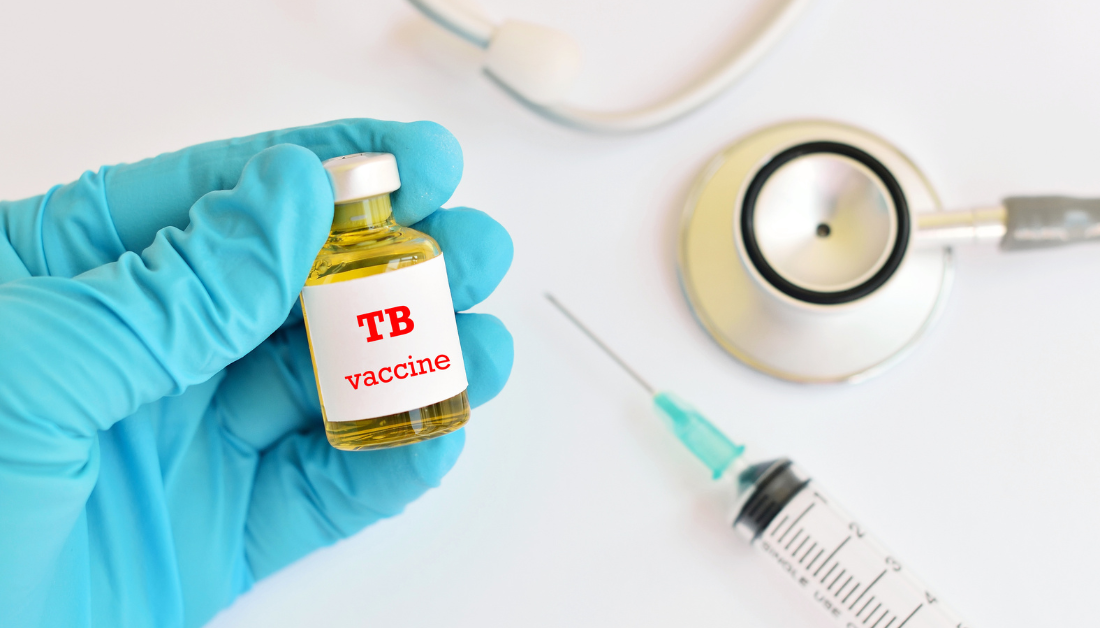

Researchers at the University of Pittsburgh School of Medicine have developed a TB vaccination method that could prevent the top cause of death among HIV-positive people globally.
The findings, published this week in Nature Microbiology, reveal that the sole commercially available TB vaccination, when administered intravenously, reliably and safely prevents lung infection in monkeys infected with the simian, or primate, type of HIV known as SIV. This is despite the fact that the vaccine is not recommended for those living with HIV.
“What is really exciting about this study is that, for the first time, we’re seeing complete protection from TB in a model of HIV. This hasn’t been shown before. This shows that there’s potential to protect people living with HIV against TB.”
Dr. Erica Larson, lead author, research assistant professor in Pitt’s Department of Microbiology and Molecular Genetics
One in every three HIV-positive patients dies from tuberculosis, which is caused by a bacterium called M. tuberculosis and mainly targets the lungs. After COVID-19, it is the world’s second-leading infectious killer. According to the World Health Organization, around 1.6 million people die from tuberculosis each year, including nearly 200,000 individuals living with HIV.
Bacille Calmette-Guérin (BCG) is a TB vaccine that has been in use for over 100 years and is one of the most extensively used vaccines in the world. It is composed of a live but weakened strain of M. bovis, a bacteria related to M. tuberculosis. BCG is typically administered to infants and toddlers via skin injection; however, it provides only limited protection against M. tuberculosis, particularly infection of the lungs.
The new study builds on these findings.
“We almost didn’t do this study with this vaccine out of fear that the vaccine itself would cause serious disease in these immunocompromised animals,” said senior author Dr. Charles Scanga, research associate professor in Pitt’s Department of Microbiology and Molecular Genetics. “BCG is a live bacteria. It is safe for people with healthy immune systems, but HIV suppresses immunity, and even weakened bacteria can be fatal.”
With the previous Nature paper’s optimistic results, the researchers decided to proceed with the experiment. But they did something different. They gave the monkeys antibiotics three weeks after immunization to eliminate all of the live attenuated germs in the vaccine. They hoped that the BCG would boost the immune system long enough to guard against a true TB infection, but not long enough for the weaker germs in the vaccine to induce disease in the immunocompromised monkeys.
The risk paid off. Not only were no animals harmed by the BCG vaccine, but 75% of the monkeys with SIV who were inoculated intravenously and then given antibiotics a few weeks later effectively fought off TB infections. Intravenous BCG immunization also protected all of the monkeys that were not infected with SIV. The only animals in whom the vaccine failed to prevent TB were those with the most severe SIV sickness, most likely because the SIV had already wiped out the immune cells, leaving none for the vaccine to train to fight TB.
The experts point out that giving this vaccination intravenously to patients with HIV and then expecting them to return in a few weeks to take antibiotics to prevent the BCG vaccine from causing disease is not feasible, particularly in low- and middle-income countries. They intend to investigate the safety of intravenous BCG without the use of antibiotics, as well as novel BCG vaccinations in development that self-destruct before they may cause disease in immunocompromised persons while still preventing tuberculosis.
“TB is rampant in parts of the world where there isn’t a really good public health infrastructure,” said Scanga, who is also a member of Pitt’s Center for Vaccine Research. “Unfortunately, those are also places where HIV goes undiagnosed or untreated and spreads. So, epidemiologically, TB and HIV go hand-in-hand. Prevention in the form of a realistic TB vaccination strategy is going to be key to saving hundreds of thousands of lives each year. And I’m hopeful that our study is a big step in that direction.”
For more information: Intravenous Bacille Calmette–Guérin vaccination protects simian immunodeficiency virus-infected macaques from tuberculosis. Nature Microbiology.
more recommended stories
 Nanoplastics in Brain Tissue and Neurological Risk
Nanoplastics in Brain Tissue and Neurological RiskKey Takeaways for HCPs Nanoplastics are.
 AI Predicts Chronic GVHD Risk After Stem Cell Transplant
AI Predicts Chronic GVHD Risk After Stem Cell TransplantKey Takeaways A new AI-driven tool,.
 Red Meat Consumption Linked to Higher Diabetes Odds
Red Meat Consumption Linked to Higher Diabetes OddsKey Takeaways Higher intake of total,.
 Pediatric Crohn’s Disease Microbial Signature Identified
Pediatric Crohn’s Disease Microbial Signature IdentifiedKey Points at a Glance NYU.
 Nanovaccine Design Boosts Immune Attack on HPV Tumors
Nanovaccine Design Boosts Immune Attack on HPV TumorsKey Highlights Reconfiguring peptide orientation significantly.
 High-Fat Diets Cause Damage to Metabolic Health
High-Fat Diets Cause Damage to Metabolic HealthKey Points Takeaways High-fat and ketogenic.
 Acute Ischemic Stroke: New Evidence for Neuroprotection
Acute Ischemic Stroke: New Evidence for NeuroprotectionKey Highlights A Phase III clinical.
 Statins Rarely Cause Side Effects, Large Trials Show
Statins Rarely Cause Side Effects, Large Trials ShowKey Points at a Glance Large.
 Anxiety Reduction and Emotional Support on Social Media
Anxiety Reduction and Emotional Support on Social MediaKey Summary Anxiety commonly begins in.
 Liquid Biopsy Measures Epigenetic Instability in Cancer
Liquid Biopsy Measures Epigenetic Instability in CancerKey Takeaways Johns Hopkins researchers developed.

Leave a Comment